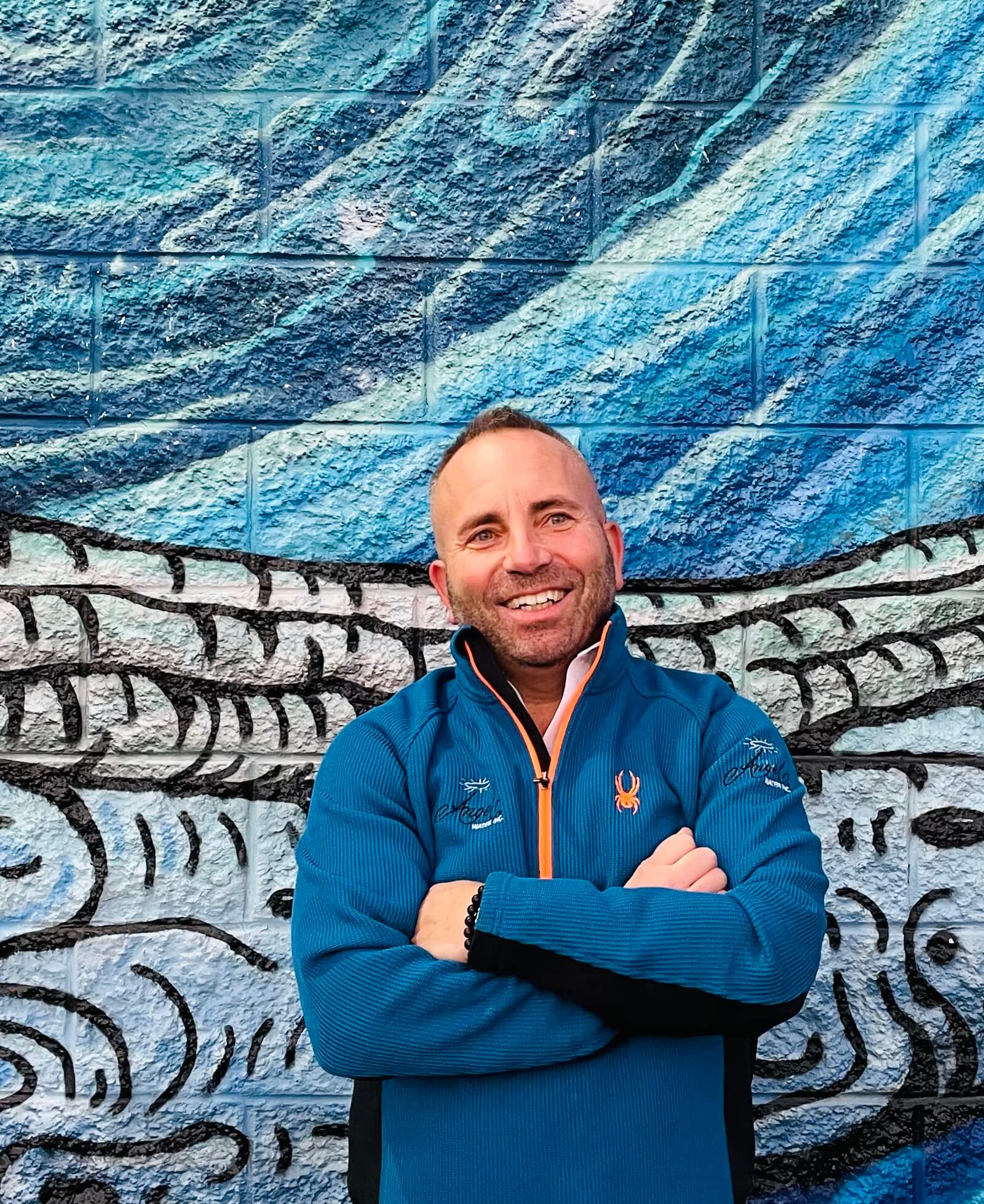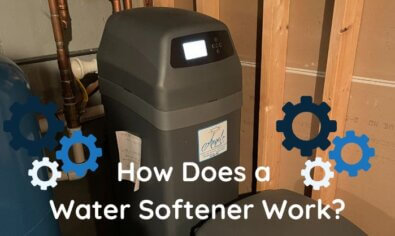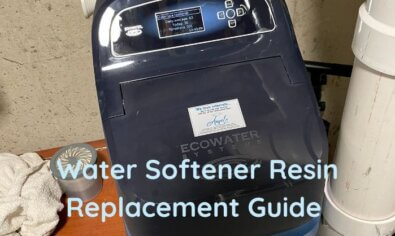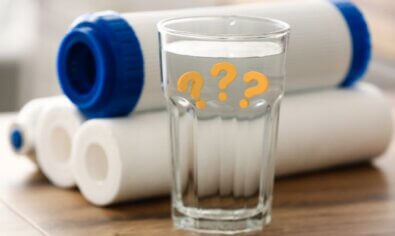What is a Boil Order? What You Need to Know to Keep Your Family Safe
In this blog, you’ll learn about these main takeaways:
- A boil order is an advisory to keep you safe from contamination.
- Boil orders can be issued for many reasons, such as a water main break.
- Boil orders have been happening frequently throughout Chicagoland.
- If under a boil advisory, you need to boil water for most activities.
- You can stay safe by boiling your water, using bottled water or investing in a high-quality water filter.
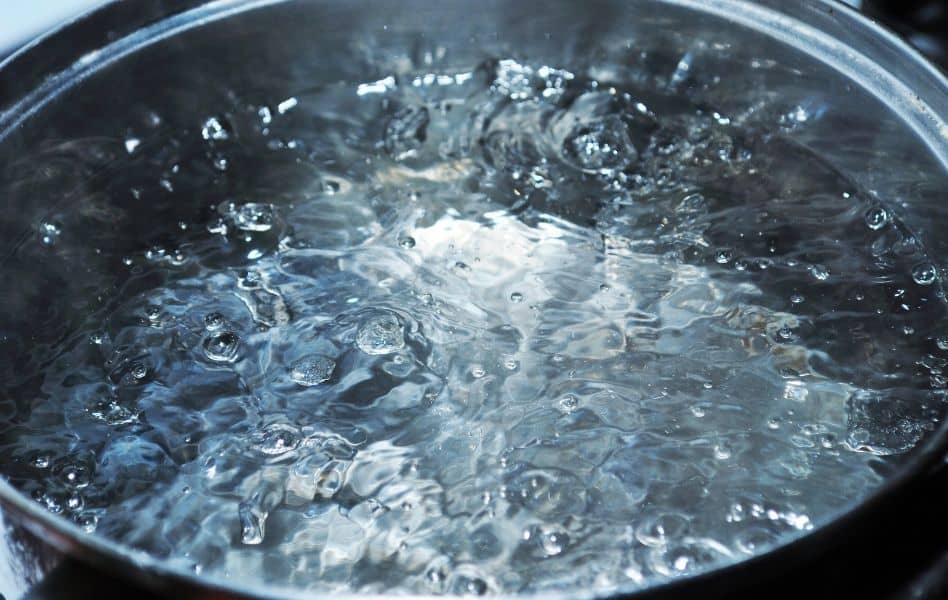
Learn What a Boil Order in Illinois is and What You Can Do to Protect Yourself!
In 2021, you’d think that people would have access to clean, running water. Unfortunately, that still isn’t the case, and boil orders still happen frequently in our region. The question is why.
As we’ll see, boil orders have everything to do with Chicago water systems falling apart. The infrastructure that gets your water to you is very old and is likely going to stay that way for a long time.
So, what does a boil order mean exactly? In this blog, you’ll learn why Chicago-area officials issue them, how to stay safe from faulty government water systems, and what you can do if there is a boil order in your area. Keep reading to learn what causes boil orders and examples of boil orders in the Chicagoland area.
What is a Boil Order?
A boil order is an alert to residents when there is a potential for compromised water in their area. Local or state agencies issue boil orders when they are concerned about possible water contamination. All water that you consume or use on surfaces should be boiled under these advisories.
Boil orders are a necessary and required precaution to help prevent a water-borne illness outbreak. Typically, if healthy people were to drink water during a boil order, they’d get a sour stomach or diarrhea. However, the contaminated water could kill the elderly, immunocompromised and infants. So, it is very important that you follow boil orders any time your local or state government issues one.
According to the Illinois Environmental Protection Agency (EPA), all of these situations are grounds for a boil order:
- Water pressure gets too low (below 20 pounds per square inch)
- Surface water floods the drinking water system
- Something prevents the necessary surface water treatment process from happening
- Public officials suspect that contamination has occurred
- The drinking water tests positive for E. coli
If your local health officials issue a boil water advisory, you should use bottled water or boil tap water.
But how long does a boil order last? Unfortunately, there’s no specific answer to that question. A boil order may last a few hours to a couple of weeks, depending on the problem.
Next, let’s look at what causes boil orders.
What Causes Boil Orders?
Boil orders frequently happen in the Chicagoland region and throughout Illinois because the water infrastructure is decrepit and falling apart. Additionally, boil alerts also occur because of power outages, sewage leaks, pressure loss and natural disasters. Depending on the reason for the boil alert, different contaminants might be present.
Here’s why each of these causes requires a boil order:
- Water Main Breaks: When a water main breaks, contaminants from the soil around the pipe can enter the water system.
- Power Outages: The water treatment plant may stop working when the power goes out. So, don’t use tap water for anything until you know whether a boil alert is in place.
- Sewage Leaks: Because of what is in a sewage system, there’s a huge risk for contamination when sewage pipes leak and get into the water.
- Pressure Loss: The loss of pressure in the water system can allow contaminants to enter the pipes.
- Natural Disasters: Severe weather events, like flooding, often cause extra untreated water to get into the drinking water system. This water could contain sewage and other dangerous contaminants, making it dangerous to drink.
Unfortunately, all these problems aren’t going away any time soon, especially water main breaks in Chicagoland. Local officials are looking to get federal help and funds to repair the weak water system. However, even after securing the funds, it will take a long time to replace the entire system.
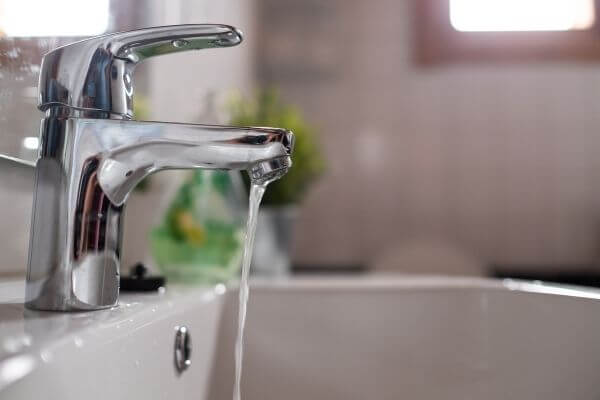
What is a Boil Order Compared to a Boil Water Advisory?
While a boil water advisory and boil water order sound similar, they indicate different risk levels. Think of boil advisories as a heads-up. It means there’s a possibility that your water could be contaminated, but officials haven’t confirmed contamination yet. This serves as a precaution, often due to a water pressure drop, nearby water main break, or some other potential for contamination.
On the other hand, a boil order for water contamination is much more urgent. It means that contamination has been confirmed. Treat this as a non-negotiable: always boil water before consuming. It doesn’t matter if the water is for drinking, cooking, or washing.
Is a Boil Water Order the Same as a Do Not Use Advisory?
During a boil water order, you can still use water after boiling it. However, a do not use advisory is much more serious. It means that your water is so contaminated that boiling won’t help. No amount of heating will remove the dangerous chemicals, toxins, or other contaminants that enter the system.
This commonly occurs due to:
- Chemical spills
- Sewage system failures
- Algal blooms
- Industrial or radiological contamination
Think of it as a gas leak. You wouldn’t just try to filter the air; you’d stay far away until it’s safe. This means you should stick only to bottled water and follow local guidelines for flushing toilets and watering plants.
What Activities Do I Need to Boil Water For?
During a boil order advisory, it’s important that you boil or otherwise treat any water that you will consume, drink or use on surfaces. If you can’t boil water, use bottled water if available.
Here are all the activities you should boil or treat your water for:
- Drinking (including your pets)
- Brushing your teeth
- Making baby formula
- Washing fruit or vegetables
- Preparing or cooking food
- Cleaning dishware
- Brewing tea, coffee, etc.
To avoid using contaminated dishes or glassware, you may want to use paper or other disposable dishware. According to the CDC, your household dishwasher is generally “safe to use if the water reaches a final rinse temperature of at least 150 degrees Fahrenheit… or if the dishwasher has a sanitizing cycle.”
When Can I Use Tap Water During a Boil Water Advisory?
Fortunately, not every task requires boiling water. According to the CDC, it’s usually safe to use tap water and soap to wash your hands, but boiled or bottled water is always better. If you don’t have access to soap or running water, you can also use hand sanitizer.
Angel Water Now Offers Free Water Tests!
Don’t Guess, Test! Get Your Free Water Test Now and Take Control of Your Water Quality.
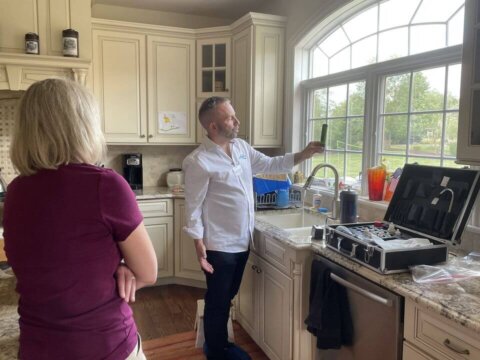
Additionally, you can use tap water while bathing or showering, but be careful to avoid swallowing any water. For babies or young children, you can reduce the chance of them drinking the water by giving them a sponge bath instead.
Other activities that are safe to do with unboiled water include washing your clothes and watering your plants.
What Are Some Examples of Boil Orders?
You might be wondering, “What are some examples of boil orders near me?” Let’s take a look at some recent boil orders that have happened in 2021:
Dixmoor Boil Order
The Dixmoor water crisis left residents without clean water and with low water pressure for much of October 2021. They were issued a boil order when water pressure dropped to less than half of its normal levels because of broken pipes in Dixmoor and Harvey, where Dixmoor receives its water.
After two weeks, the boil order was finally lifted. Unfortunately, this problem won’t be going away any time soon. Local officials used a temporary fix to get residents their water back, but now they need to completely fix the problem. So, Dixmoor may have more boil orders in the future.
Beverly and Morgan Park Boil Orders
The Beverly and Morgan Park neighborhoods experienced a boil order in May 2021. This 24-hour boil order happened because of an issue with a water pump. The boil order was lifted once the equipment was repaired.
Plainfield Boil Order
In September 2021, the village of Plainfield had a boil order after E.coli was found in the system. Unfortunately, this boil order was issued two days after they had found the bacteria in the water. This caused major concern to residents, as they could have become sick with E. coli without any warning.
Because of this water issue, many schools in Plainfield converted to remote learning until the boil order was lifted. After three days, the boil order was lifted once samples came back with no signs of Coliform or E.coli bacteria.
Skokie and Evanston Boil Orders
In February 2025, a major water main break at East Prairie Road and Emerson Street led both Skokie and Evanston to issue boil orders. The incident led to severe flooding, which turned McCormick Boulevard into an icy hazard.
Both municipalities issued boil water orders, advising residents to boil tap water before use. Evanston lifted its boil order on February 15 after thorough testing confirmed water safety. Skokie followed suit on February 16 upon completing repairs and ensuring the water met safety standards.
Beverly, Morgan Park, and Auburn Gresham Boil Order
A leak on a high-pressure water main inside the Roseland Pumping Station in July 2024 caused a drop in water pressure. This prompted a boil order for the Beverly, Morgan Park, and Auburn Gresham neighborhoods. Residents were instructed to boil water before consumption until the issue was resolved and water pressure restored.
Elmhurst and Hawthorn Woods Boil Orders
Also in July 2024, officials in Elmhurst and Hawthorn Woods issued boil orders due to water main breaks affecting their systems. City officials instructed residents to boil water for at least five minutes before use as long as the orders remained in effect.
How Can I Protect My Health if There’s a Boil Order Near Me?
There are many steps you can take to protect your health during a boil order. Let’s take a closer look at some essential things you can do to stay safe.
Follow Boil Order Guidelines
If there is a boil order in place in your area, that means there’s a likely chance the water has contaminants that could make you sick. If you don’t have safe bottled water, you should boil your water to make it safe to drink. Boiling is the surest method to kill disease-causing organisms, including viruses, bacteria, and parasites.
During boil water advisories, the CDC recommends this advice:
- Use bottled or boiled water for drinking and preparing or cooking food.
- If you don’t have access to bottled water, bring water to a full rolling boil for 2 minutes and let your water cool before using it.
- Boil your tap water even if you use a tap water filter or a pitcher that filters water like Brita or Pur.
- Avoid using water from any appliance connected to your water lines, such as ice cubes and water from your refrigerator.
Use Bottled Water
As an alternative, drink bottled water instead of boiling water. The CDC strongly recommends using bottled water instead of boiled tap water. If you do not have access to bottled water, be sure to follow the steps above before consuming any tap water.
Invest in a High-Quality Water Filter
One of the best ways to protect you from contaminated water is a high-quality filter, such as a microbiological filter, UV filter or reverse osmosis system. These water filters help protect you from government water systems, boil order or not, by killing any dangerous bacteria lurking in the water.
Ready to Protect Your Water?
Unfortunately, government systems that are supposed to protect your water aren’t very trustworthy. So, you need to take the health of you and your family into your own hands!
Angel Water is here to help you do that. We provide high-quality equipment to keep your water clean and safe. Additionally, we can help you know what’s in your water and how to stay vigilant.
If you need assistance getting the clean water you need, we’re here to help! Please call us today at 847-382-7800 to talk to a water treatment expert. You can also use our online Water Wizard to determine the best options for keeping your water safe.
Interested in a Water Softener System for Your Home?
You don’t have to live with a dry, itchy scalp and brittle hair anymore! It would be our pleasure to help you find the right water softener to make your showers enjoyable again.
Please give us a call at (847) 382-7800 or visit our water softener page to learn more.
